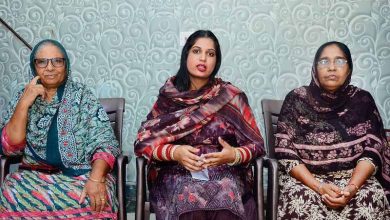Punjab: Experts demand strict regulation as smartphones distract attention from books

Punjab: At a time when the tactile pleasure of turning a page is fast being replaced by tapping on a screen, the age-old saying ‘books are man’s best friend’ is fading into oblivion. Books were once our beloved companions, offering solace and insight into all facets of human emotions – happiness, sadness, excitement and despair. But today, the ubiquity of smartphones and the allure of social media have led both students and adults away from the rich habit of reading. A recent study by the National Literacy Trust has revealed a worrying decline in reading habits among children in India. According to the survey, only 34.6 per cent of children aged 8 to 18 enjoy reading in their free time, a much lower number than in previous years. Experts warn that this decline is not just due to books – it reflects a broader shift in cognitive and social engagement among the younger generation. Professor MP Singh, president of the Punjab unit of the Coaching Federation of India, blames smartphone addiction for this erosion of reading culture. “Students are distancing themselves not only from books but also from real-world social interactions. This addiction is negatively affecting their mental, emotional and social development,” he said. Singh recalled old times when families encouraged reading as a shared experience. Elders read scriptures like the Ramayana and the Bhagavad Gita, parents kept up with newspapers and magazines and children followed them. “Today, the family environment has changed. Screens dominate our homes instead of books,” he said. To tackle this decline, Singh stressed the need for strict regulations, even suggesting a ban on smartphones for students below the age of 18. “Young children, especially those aged 4 to 7 years, are at a crucial stage of brain development. Excessive exposure to screens can lead to reduced cognitive abilities, shorten attention span and hamper the development of crucial life skills such as empathy and problem-solving,” he said. The problem extends beyond schools. With the rise of learning apps, even young children are being exposed to digital education, pulling them further away from books. “Parents proudly enrol their three-year-olds in mobile-based learning programmes. But if a child is exposed to screens from such a young age, how will he ever understand the joy of reading a physical book,” questioned educationists. Teens themselves admit that they are losing interest in traditional reading. Kavyansh, a 16-year-old student, said he finds library sessions boring. “We don’t enjoy reading encyclopaedias and science books. We are interested in stories of real people who overcame struggles and achieved success. We listen to podcasts about billionaires and it is very interesting,” he said. Dr Inderpal Singh, dean of research and examination and head of management at Lyallpur Khalsa College Technical Campus, believes structural changes are needed to revive reading habits. “Strengthening libraries, making good books more accessible and holding reading competitions with prizes can encourage students to develop a reading habit,” he said. Setting a designated reading time, minimising digital distractions and choosing engaging content are key to rekindling interest in books, he said.





